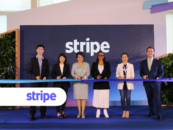
BIS and 7 Central Banks Launch Project Agorá for Tokenised Cross-Border Payments
by Fintech News Singapore April 4, 2024The Bank for International Settlements (BIS), in concert with seven prominent central banks, has embarked on an exploratory project known as Project Agorá aiming to modernise international monetary transactions.
This initiative, named after the Greek word for marketplace, aims to delve into the potential benefits of tokenising cross-border payments to enhance the global monetary system’s efficiency.
The collaboration involves the Bank of France (on behalf of the Eurosystem), Bank of Japan, Bank of Korea, Bank of Mexico, Swiss National Bank, Bank of England, and the Federal Reserve Bank of New York. These institutions will join forces with a consortium of private financial companies organised by the Institute of International Finance (IIF).
Project Agorá proposes to leverage the concept of a unified ledger to investigate the integration of tokenised commercial bank deposits with tokenised wholesale central bank money on a public-private programmable financial platform.
The initiative seeks to leverage smart contracts and programmability to improve monetary system operations while preserving its foundational two-tier structure.
The adoption of smart contracts is expected to introduce new settlement methodologies and facilitate transaction types currently infeasible, potentially unlocking novel benefits for businesses and consumers alike.
This collaborative effort aims to address and mitigate the structural inefficiencies prevalent in current cross-border payment processes.
Such inefficiencies, compounded by disparate legal frameworks, regulatory standards, and technical requirements across jurisdictions, present considerable challenges in terms of operational hours, time zones, and the repetitive execution of financial integrity checks, such as anti-money laundering and customer verification protocols.
As an experimental venture under the BIS Innovation Hub, Project Agorá will focus on developing and delivering innovative solutions to the global central banking community.
The BIS plans to invite private financial institutions to participate in Project Agorá, with the IIF facilitating the involvement of the private sector.
This initiative is set to include a diverse group of regulated financial entities representing the currencies of the seven participating central banks, with further details and participation criteria to be announced. Being a member of the IIF is not a requirement to participate.

Featured image credit: Edited from Freepik





